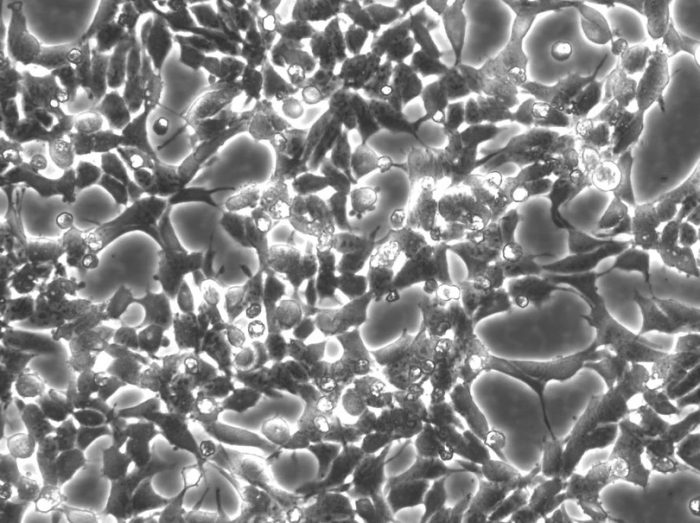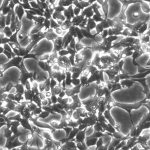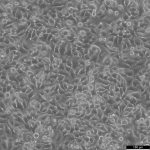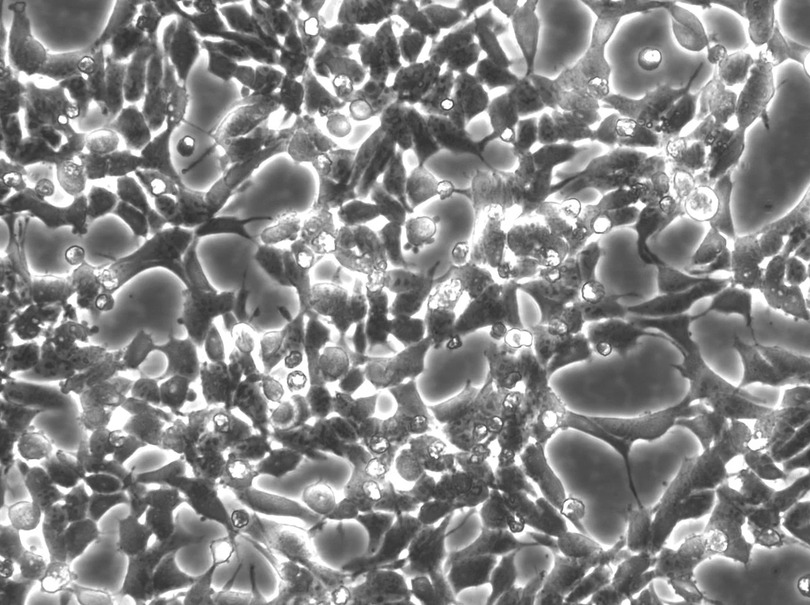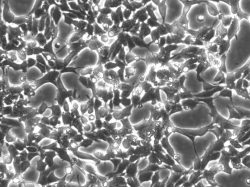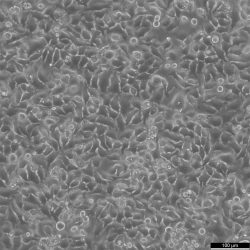HEK293 Cells
The HEK293 cell line, an immortalized epithelial cell line derived from human embryonic kidney cells in the 1970s by Alex van der Eb at the University of Utrecht, has become a pivotal experimental model in molecular biology and biotechnological applications due to its remarkable versatility and ease of genetic manipulation.
The transformation of the HEK293 cell line involved the integration of a specific segment from Adenovirus 5 DNA, embedding the adenoviral E1A and E1B genes within the cellular genome. The adenoviral DNA modification enabled the cell lines’ ability to uptake foreign DNA efficiently, a feature known as high transfection efficiency. The integration of viral DNA into the HEK293 cell genome resulted in cellular immortalization and significantly enhanced the utility of these cells in biotechnological applications by facilitating the stable incorporation and expression of exogenous DNA, a process termed stable transfection. This capability allows for the persistent presence and function of foreign genes within the cells, making HEK293 an invaluable tool for genetic studies and biotechnology.
